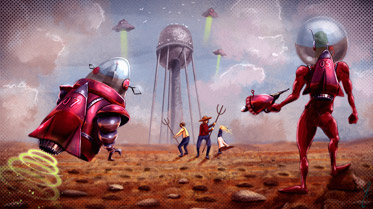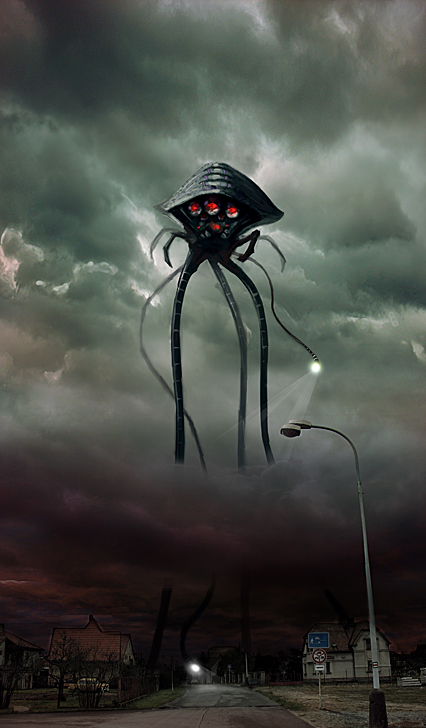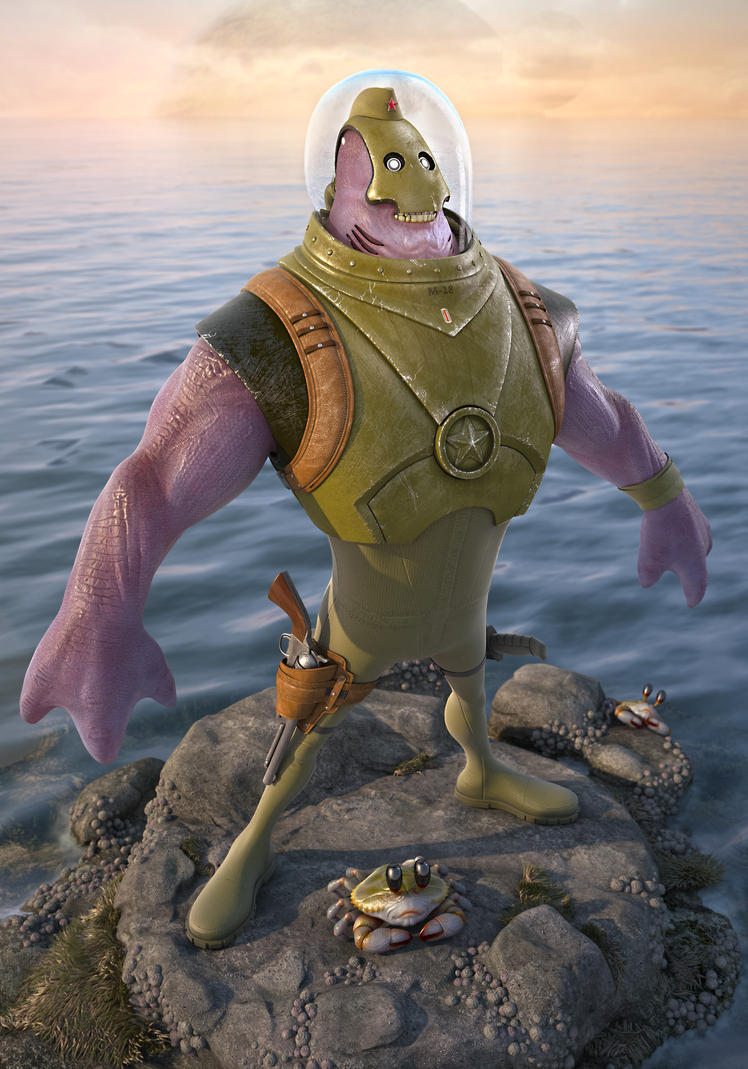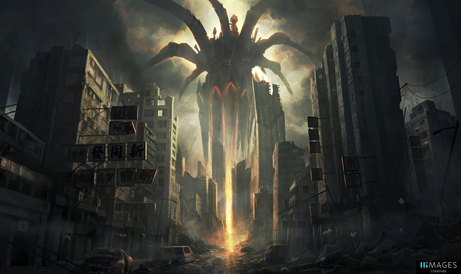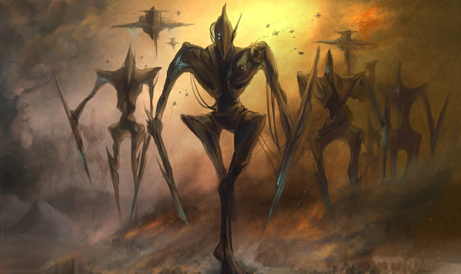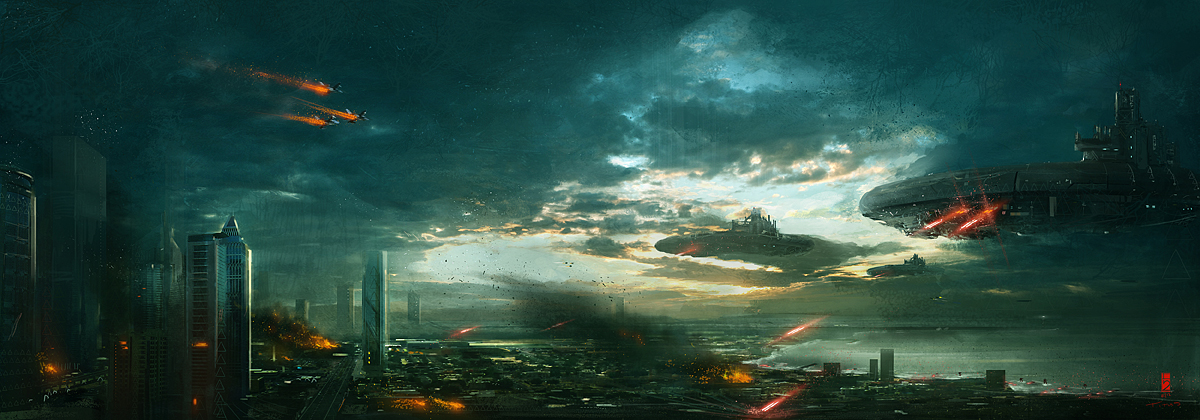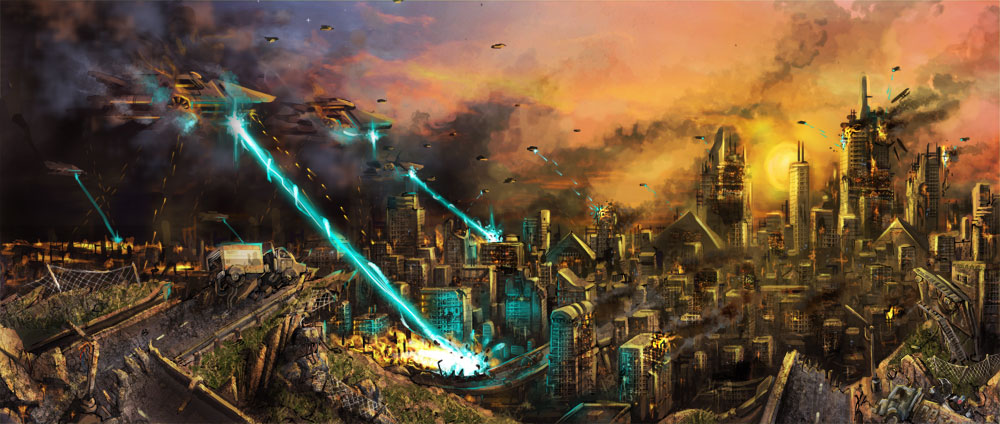Could the alien invasion film phenomenon be an expression of the hope for humanity’s unity?
Prometheus, the highly anticipated prequel to all the Alien films (which also features the return of original Alien director Ridley Scott) opens Friday. The film’s story involves a team of astronauts sent to deepest space to investigate the origins of human life, only to discover that an imminent alien invasion may soon wipe out all human life.
The “alien invasion threat” was first mainstreamed into American popular consciousness in 1938 when Orson Welles and his Mercury Theatre Group broadcast a radio version of H.G. Wells’ “War of the Worlds” which sent the country into chaos. Despite announcements at the commercial breaks that the program was fictional, people took to the streets with guns and invading spaceships and rampaging aliens were spotted everywhere. Film historians credit the 1950s deluge of alien invasion films to the paranoia in which the aliens made for nicely metaphoric stand-ins for communists and a feared Soviet invasion. But after several decades of relative alien invasion inaction there has now been an exponential explosion in alien invasion films (and videogames).
In 1977, the Close Encounters aliens were friendlies and in 1982, E.T. was even friendlier. Now it seems at least once a month there’s an alien force invading from outer space or rising out of the Pacific Ocean intent on our extinction. What’s going on here?
The genius of science-fiction is that it can project a specific aspect of the human experience into a future time or against a fundamentally different environment in order to gain a new perspective on that aspect of being human from a radically “objective” viewpoint. In the simplest sci-fi, six-shooters become ray-guns and battleships become spaceships. One simply imagines updates to human armaments a few centuries into the future. In more sophisticated sci-fi, like Solaris (novel by Stanislaw Lem, filmed by Tarkovsky, and by Soderbergh) the possible future evolution of human emotions and identity is explored. Science fiction just seems to be the go-to in storytelling when significant numbers of people start feeling trepidatious about onrushing events and would like their writers and other artists to start vetting some possible ways out of what appears to be something wickedly catastrophic just beyond the horizon. Could this explain the current inundation of alien invasion movies and videogames?
Could there literally be an irrational fear of an actual alien invasion?
It doesn’t seem likely. I would like to propose the thought that there might be a more hopeful and life-affirming flip-side to the out-of-control alien invasion coin. It has been a standard strategy down through the ages to bring together the warring factions of one’s own nation by creating rumors of imminent invasion by another, foreign, nation. Unity becomes preferable to total annihilation. This strategy of “unity for survival” is described as “the enemy of my enemy is my friend.”
Could it be that in contemplating our current planetary perils – global terrorism, resource collapse, child soldiers, climate change, economic chaos – that we’ve become completely overwhelmed? Have we decided that things have gone too wrong for too long to ever be righted by a sudden emergence of human rationality – that there will never be the recognition of our being one human family? And could it be that this is the depressed state out of which is being issued this now ubiquitous fantasy of an alien invasion that would force all nations, all religions, all peoples of the Earth to finally bond together for their mutual self-defense? Could it be that movie-going audiences are subconsciously seeing an Alien Armageddon not as “the end” but as our last great hope for unifying humanity?
I think this might be the real resonance that’s going on just below the surface. I think audiences are finding a real joy in the moments in these movies when all petty tribal and political differences are set aside and people of all colors and creeds fight as brothers and sisters against the impossible odds. “The enemy of my enemy is my friend” may not be the most heartwarming of human sentiments, but maybe it’s just what we need in our times of such oppressive psychic depression.
In any case, as we await whatever new technologies, urban landscapes, vehicles or apocalyptic scenarios the future might bring, we have the solace of enjoying our artists' imaginative renditions of our possible future existences and possible apocalyptic scenarios.

